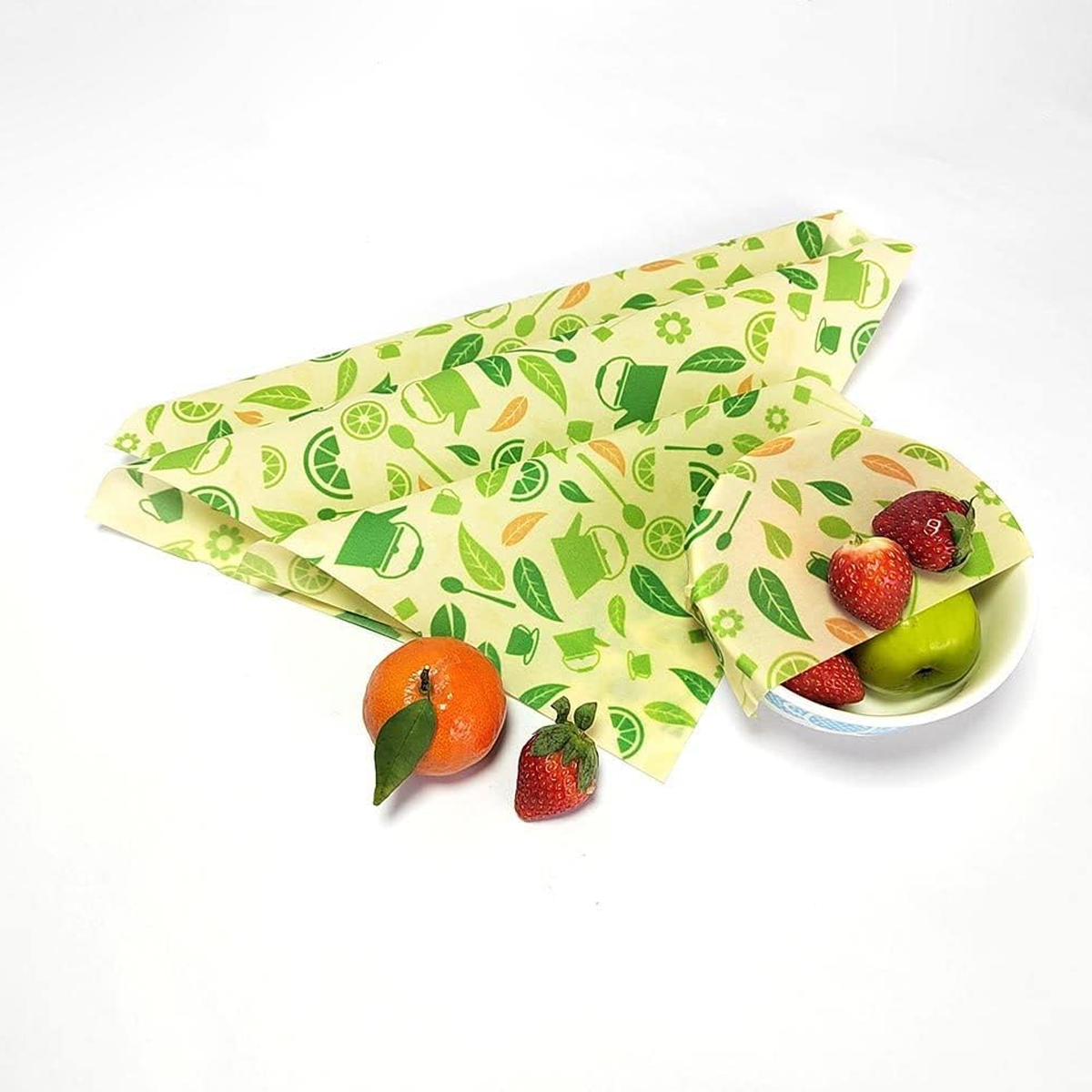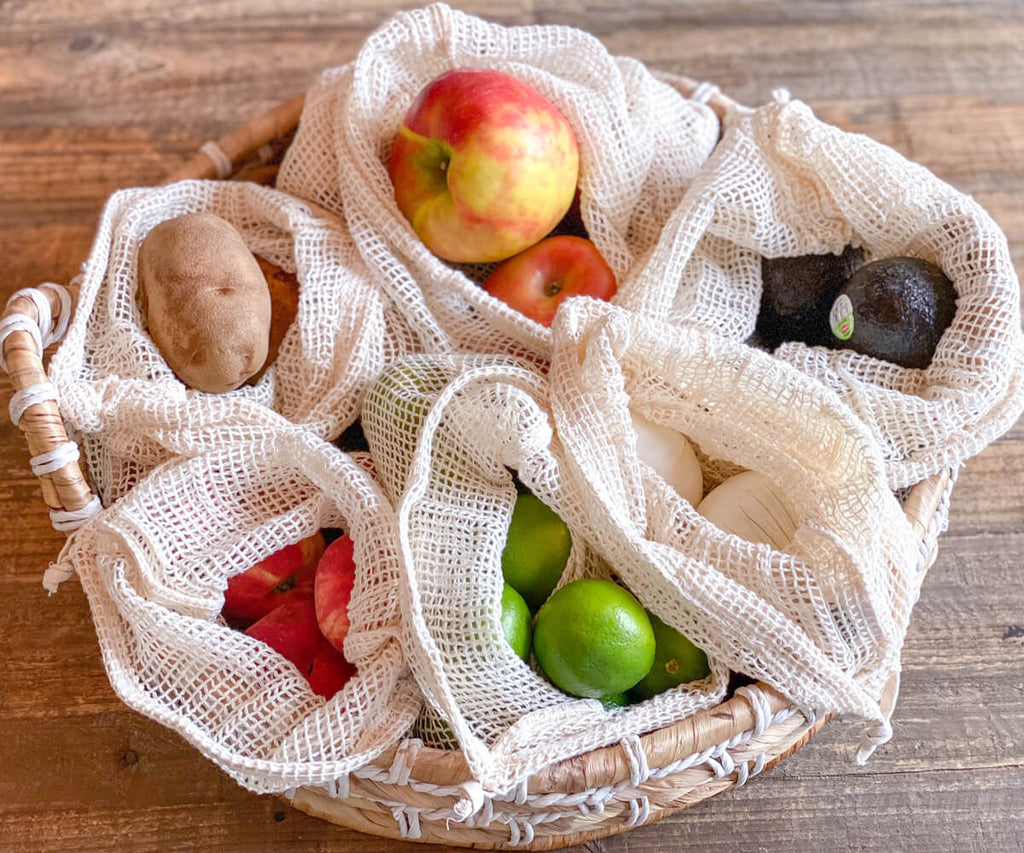In our journey toward a more sustainable lifestyle, the kitchen offers countless opportunities to reduce our environmental footprint. One of the most impactful changes we can make is transitioning away from single-use plastics and embracing eco-friendly food storage solutions. With rising awareness about the devastating effects of plastic waste on our oceans and wildlife, it's crucial that we start making conscious choices, especially in everyday aspects of life like food storage.
The good news is that sustainable kitchen swaps can be easy, affordable, and stylish. In this post, we’ll explore some practical and eco-friendly alternatives to traditional kitchen products, including food wraps, containers, and more. Not only will these swaps help reduce waste, but they also promote a healthier lifestyle and a cleaner planet.
The Shift from Plastic Wrap to Beeswax Food Wraps
Traditional plastic wrap, though convenient, is one of the worst offenders in terms of environmental pollution. According to a study by the Australian Marine Conservation Society, millions of tons of plastic waste enter our oceans each year, much of it in the form of single-use items like plastic wraps. These wraps take hundreds of years to decompose, polluting waterways and posing a risk to marine life.
Enter beeswax wraps—an innovative and natural alternative to plastic wrap. Beeswax wraps are made from organic cotton infused with a blend of beeswax, tree resin, and jojoba oil. These wraps are breathable, reusable, and naturally antimicrobial, making them perfect for wrapping food and keeping it fresh without the need for plastic.
The Beeswax Packaging Paper Food Wrap Roll is a fantastic option for those looking to reduce their plastic usage. Its versatility allows you to wrap sandwiches, cover bowls, store fruits, vegetables, and even cover half-eaten leftovers. It’s easy to use and clean, simply wiping the wrap down with a damp cloth or washing it with mild soap and water to reuse it time and again.
The best part? Beeswax wraps are completely biodegradable, so when they finally wear out after months or years of use, you can compost them, ensuring they won’t sit in a landfill for centuries like plastic. Whether you’re a single person looking to reduce plastic waste or a family trying to make more eco-conscious choices, beeswax wraps are a practical, sustainable, and attractive addition to your kitchen.
Benefits of Beeswax Wraps:
- Reusable: You can use them for months or even years with proper care.
- Biodegradable: When they reach the end of their life, they can be composted.
- Chemical-Free: Made from natural, non-toxic materials.
- Versatile: Great for wrapping food, covering containers, or even creating your own DIY food bags.
- Stylish: Available in various patterns and colors, they add an aesthetic touch to your kitchen.
By switching from plastic wraps to beeswax wraps, you’re making a small change that has a big impact. Reducing your reliance on single-use plastics can help protect wildlife and reduce overall waste in our landfills and oceans.

Glass Containers: The Better Alternative to Plastic Tupperware
Plastic containers are often the go-to for meal prepping and food storage, but they come with several environmental drawbacks. Aside from contributing to plastic waste, plastic containers can leach chemicals into your food, especially when exposed to heat. This can be especially concerning when microwaving or storing hot food, as the plastic may degrade and contaminate your meals.
Glass containers, on the other hand, offer a much healthier and more eco-friendly alternative. Glass is durable, non-toxic, and can be reused endlessly without leaching harmful chemicals into your food. It doesn’t absorb food odors or stains, making it perfect for storing leftovers, soups, sauces, and even fresh produce.
While glass containers might be heavier than plastic options, their longevity and health benefits make them well worth the investment. Furthermore, glass is fully recyclable, making it a much more sustainable option in the long term.
Benefits of Glass Containers:
- Non-Toxic: Unlike plastic, glass doesn’t release harmful chemicals into your food.
- Durable: Glass containers are built to last and can be reused indefinitely.
- Eco-Friendly: Glass is 100% recyclable, reducing its environmental impact.
- Versatile: Ideal for both storage and cooking, glass containers can be used in the fridge, freezer, and microwave.
By replacing your plastic containers with glass, you’ll not only keep your food safe and fresh but also reduce your reliance on disposable plastics.
:max_bytes(150000):strip_icc()/faw-pyrex-ultimate-10-piece-glass-storage-set-victor-protasio-05-3cbe81e7b44240d0a87a7c8b9cd0c2f8.jpeg)
Reusable Produce Bags: Reduce Plastic Waste at the Grocery Store
When shopping for produce, most people grab those small, single-use plastic bags without a second thought. However, these bags contribute significantly to the plastic pollution problem. According to a report from the Australian Department of Agriculture, in 2019, Australians used over 3.5 billion single-use plastic bags. While many stores now offer the option to purchase reusable produce bags, it’s still a good idea to take matters into your own hands.
Reusable produce bags, made from mesh or cloth materials, are a great eco-friendly alternative to plastic bags. These bags are breathable, allowing fruits and vegetables to stay fresh while reducing the need for plastic. They are lightweight, washable, and can be used over and over again, making them a perfect solution for anyone looking to reduce their plastic footprint.
Benefits of Reusable Produce Bags:
- Durable and Washable: Made from long-lasting materials like cotton or mesh, these bags can be reused hundreds of times.
- Lightweight and Compact: Easy to carry in your bag or car for your next grocery trip.
- Breathable: Keeps produce fresh and allows air circulation.
- Eco-Friendly: Helps reduce the need for single-use plastic bags.
Incorporating reusable produce bags into your shopping routine is an easy and effective way to minimize plastic waste, making them an essential part of any eco-conscious kitchen.

Natural Cleaning Products: Safe for You and the Planet
When it comes to cleaning your kitchen, conventional cleaning products often contain harsh chemicals that are harmful to both your health and the environment. Many of these chemicals end up in our water systems, contributing to pollution, and they also pose a risk to human health. By switching to natural cleaning products made from ingredients like vinegar, baking soda, and essential oils, you can ensure your kitchen remains clean and free from harmful toxins.
DIY cleaning solutions are not only effective, but they are also inexpensive and simple to make. You can clean countertops, ovens, and even freshen up your refrigerator with natural ingredients. A simple mixture of vinegar and water, for example, can tackle grease and grime without the need for toxic chemicals.
Benefits of Natural Cleaning Products:
- Non-Toxic: Safe for humans, pets, and the environment.
- Eco-Friendly: Made from biodegradable ingredients.
- Affordable: Easy to make at home with pantry staples like vinegar, baking soda, and lemon juice.
- Effective: Natural products can be just as effective as commercial cleaners, if not more.
Switching to natural cleaning products not only reduces the toxic load in your home but also helps protect the environment from harmful chemical runoff.

Composting: Turning Kitchen Scraps into Fertilizer
Food waste is a significant contributor to landfill waste. In Australia, over 5 million tonnes of food are wasted each year, much of which ends up in landfills, releasing harmful methane gas into the atmosphere. Composting is a simple solution that allows you to turn food scraps into nutrient-rich soil for your garden, reducing the amount of waste sent to landfills and creating a valuable resource.
Composting is easy to start—simply collect your kitchen scraps like vegetable peels, coffee grounds, and eggshells, and add them to your compost bin. Over time, these materials will break down into rich, organic compost that can be used to nourish your garden. Not only does composting help reduce food waste, but it also reduces the need for chemical fertilizers and helps improve soil health.
Benefits of Composting:
- Reduces Landfill Waste: Diverts food scraps from landfills, where they contribute to harmful methane emissions.
- Creates Nutrient-Rich Soil: Helps nourish your garden or plants without the need for synthetic fertilizers.
- Easy and Affordable: Composting is simple to set up and doesn't require a significant investment.
Composting is an excellent way to reduce your environmental footprint while benefiting your garden and the planet.
Final Thoughts
The kitchen is one of the most important places to start making sustainable changes. By swapping out single-use plastics for reusable, eco-friendly alternatives, you can significantly reduce waste, promote better health, and contribute to the planet's well-being.
Small actions, such as switching to Beeswax Packaging Paper Food Wrap Roll, using glass containers, and investing in reusable produce bags, can have a profound impact over time. These simple swaps not only improve the sustainability of your kitchen but also enhance the overall quality of your daily life.
Start making eco-friendly choices today, and together, we can help create a cleaner, greener future for all.

